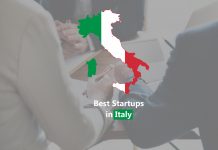Spain is increasingly recognised as a vibrant centre for innovation in Europe, with Spanish startups playing a pivotal role in transforming sectors such as fintech, mobility, renewable energy, health technology and e-commerce. With strong government support, a large internal market and access to both European and global capital, Spain’s startup ecosystem offers both scale and creativity. In this context, the term “Spanish startups” refers not simply to nascent ventures but to rapidly growing companies capable of competing on the global stage.
This article highlights ten of the most promising Spanish startups that reflect the country’s innovative potential. Each company illustrates how Spanish entrepreneurs are leveraging local opportunities, digital infrastructure and global ambition to build disruptive business models. Readers who wish to explore comparable ventures and ecosystem insights can visit the Top Startups Category.
The Spanish Startup Ecosystem
Foundations and Momentum
Spanish startups benefit from an increasingly favourable ecosystem. Government policies, including tax incentives, startup visas and innovation funding, have created improved conditions for venture formation. According to recent analyses, the Spanish startup ecosystem has reached new heights in valuation and investment. Cinco Días+1
Major urban hubs such as Madrid, Barcelona, Valencia and Bilbao concentrate talent, capital and infrastructure. In these cities, incubators, accelerators and corporate-startup collaboration programmes provide fertile ground for growth. The ecosystem has matured to the point where Spanish startups can attract significant investment while retaining their domestic roots.
Sectors of Strength
Spanish startups are particularly strong in fintech (digital banking, payments), mobility and transportation (shared mobility, green transport), healthtech (digital health, diagnostics), renewable energy / climate tech, and digital commerce. Reports show that Spain’s startup ecosystem achieved record investment levels in recent years, signalling increasing maturity and scale. CloudNews.Tech+2Startup Stash+2
Challenges Remain
Despite growth, Spanish startups still face challenges. Scaling beyond local markets into global leadership positions demands access to larger funding rounds, international talent and operational infrastructures. Regulatory and bureaucratic hurdles, although improving, continue to be relevant. Yet the progress is evident, and the ecosystem is evolving quickly.
Profile of Leading Spanish Startups
Below are ten standout companies that demonstrate the breadth and ambition of Spanish startups. Each entry includes a concise overview of the firm’s business model, value proposition and significance within the broader ecosystem.
1. Cabify
Cabify is a ride-hailing and mobility platform founded in Madrid that has expanded across multiple countries in Latin America and Europe. It offers transport services through an app-based booking system and focuses on user experience, greenhouse-gas reduction and multi-modal mobility. Within the narrative of Spanish startups, Cabify is a benchmark for scaling operations beyond a national market and combining mobility with sustainability. Wikipedia+1
2. Wallapop
Wallapop is a Barcelona-based digital marketplace that enables users to buy and sell second-hand goods via mobile. The platform emphasises community, re-use and circular-economy principles. As one of the early successes among Spanish startups, Wallapop shows how digital platforms built in Spain can address consumer behaviour globally while leveraging local expertise. Wikipedia
3. Typeform
Typeform is an online form and survey platform founded in Barcelona which emphasises user-centric design and interactive interfaces. Although the company has global reach, its Spanish origin places it firmly within the ecosystem of Spanish startups. The firm illustrates how Spanish designers and engineers can build SaaS products with global appeal, focusing on usability as a differentiator.
4. Glovo
Glovo, founded in Barcelona, is a delivery-on-demand platform that connects users with couriers to get food, groceries and retail items delivered quickly. The company’s use of data, logistics optimisation and mobile-first architecture positions it among Spanish startups that tackle digital commerce and urban services. Glovo’s regional expansion into Africa, Europe and Latin America confirms the global potential of Spanish-origin ventures.
5. Holaluz
Holaluz is a renewable-energy company based in Barcelona that offers clean electricity and smart-home solutions. The firm reflects the trend among Spanish startups to combine climate-tech, clean energy and consumer service. Holaluz demonstrates how an energy startup can scale by integrating solar, storage and digital platforms, aligning with both regulatory incentives and consumer demand.
6. Red Points
Red Points is an e-commerce protection platform headquartered in Barcelona that uses machine learning to detect and remove counterfeit goods online. This Saas business serves global brands and platforms. As one of the more technical entries among Spanish startups, Red Points highlights how intellectual-property enforcement and brand-protection services can be built in Spain for a global client base.
7. Jobandtalent
Jobandtalent is a Madrid-based workforce-marketplace platform that matches workers with shift-based jobs through a mobile app. It combines data-science, logistics and employment services, reflecting the broader trend in Spanish startups toward digital labour solutions. The company’s growth and valuation reflect the investor interest in workforce-tech from Spain.
8. Badi
Badi is a Barcelona-based property-tech startup specialising in room rentals via an online platform. It enables landlords and tenants to connect easily while leveraging verification tools, payment systems and community features. As part of the Spanish startups ecosystem, Badi shows how Spanish entrepreneurs exploit domestic housing-market inefficiencies and scale across Europe.
9. [N26 Spain] – local operation (parent Germany)
While the parent company is German, the Spanish operation of N26 (mobile banking) should be recognised for how Spanish talent and market access contribute to fintech growth in Spain. This example underscores how Spanish startups also include international firms using Spain as a base. It further signals how fintech remains central for Spanish innovation.
10. Travelperk
Travelperk is a Barcelona-based travel-management platform for businesses, simplifying booking, expense reporting and travel policy compliance. Although its market is global, its roots in Spain place it among the notable Spanish startups. The company is an example of enterprise-software growth from Spain, addressing business travel — an OECD-scale market.
Key Lessons for Entrepreneurs, Investors and Ecosystem Builders
Start with a domestic lead-market
Many Spanish startups gained traction domestically before scaling internationally. Establishing credibility, refining product-market fit and building a supportive customer base were essential stages. The initial Spanish market provides a test-bed for international expansion.
Align with global mega-trends
The sectors where Spanish startups thrive — fintech, mobility, climate-tech, digital labour and prop-tech — correspond directly to global structural shifts. Investors looking at Spanish startups can focus on those aligning with these macro themes.
Combine design and technology
Spain’s strength in design, user experience and aesthetics give Spanish startups an edge in product-oriented SaaS, consumer apps and marketplaces. The ability to combine “beautiful” design with robust engineering is a recurring advantage.
Leverage ecosystem support
Accelerators, incubators, government programmes and co-working networks have matured in Spain. Spanish startups benefit from both domestic capital and increasingly global investors. Understanding how to navigate and leverage these ecosystem supports remains critical.
Growth and Evolution of Spanish Startups
The story of Spanish startups is one of rapid acceleration over the past decade. Once seen as a peripheral innovation market in Europe, Spain has now become a strategic hub linking Southern Europe, Latin America, and North Africa. The evolution of venture funding, digital infrastructure, and global talent mobility has positioned Spanish startups among Europe’s most promising ecosystems.
Scaling From Local to Global
Spanish startups typically follow a dual-phase growth strategy: first, establishing a dominant position in Spain’s domestic market, and second, expanding internationally. With over 47 million consumers and a high rate of digital adoption, Spain offers a robust test environment.
Companies such as Glovo and Cabify embody this model. Both began with urban services tailored to Spanish consumers before scaling across Latin America, Africa, and Europe. Their global expansion underscores how Spanish startups can export business models that adapt well to culturally diverse markets.
Investor Confidence and Funding Dynamics
Venture investment in Spain has reached record levels. Global funds such as Index Ventures, Seaya Ventures, Accel, and SoftBank have heavily invested in Spanish startups. Domestic funds have also matured, with a growing focus on later-stage financing.
The presence of corporate-venture capital has further enhanced the ecosystem. Major Spanish corporates, including Telefónica, Banco Santander, and Iberdrola, have launched accelerators and investment vehicles targeting Spanish startups. These programs not only inject funding but also provide mentorship, technical expertise, and large-scale market access.
A growing number of exits through mergers and acquisitions have validated the maturity of the ecosystem. For instance, Delivery Hero’s acquisition of Glovo reinforced Spain’s status as a hub for high-value deals.
Technological and Sectoral Trends
1. Fintech and Digital Banking
The fintech sector continues to anchor Spain’s innovation landscape. Startups such as Bnext and Verse (acquired by Square) have joined N26 Spain and traditional players in offering seamless, digital-first financial services. These firms address consumer demand for lower costs, flexibility, and mobile accessibility.
Fintech Spanish startups also benefit from regulatory initiatives like Spain’s “sandbox,” which allows experimentation with innovative financial products under controlled conditions. This policy fosters trust and accelerates the introduction of new financial models.
2. Mobility and Urban Sustainability
Mobility innovation remains a defining strength. Cabify and Glovo illustrate how Spanish startups merge sustainability with convenience. Cabify has committed to achieving a fully electric fleet in the near future, while Glovo continues to integrate eco-delivery initiatives.
Government policies promoting electric vehicles and green logistics have accelerated this transformation. These developments align with broader European Union goals of decarbonising transportation — giving Spanish startups a strategic advantage in regulatory alignment and funding access.
3. Renewable Energy and Climate Tech
Spain’s abundant solar and wind resources make it an ideal market for renewable-energy ventures. Holaluz leads this segment by integrating solar generation, digital billing, and household energy management. Its platform transforms consumers into energy producers, a concept central to modern sustainability.
Other Spanish startups are entering energy-efficiency monitoring, smart-grid analytics, and carbon-credit markets. The focus on sustainability is becoming a unifying theme across industries, supported by strong public and investor sentiment.
4. SaaS and Enterprise Platforms
Software-as-a-service companies such as Typeform, Red Points, and Travelperk illustrate Spain’s growing competence in enterprise software. Their ability to attract international clients demonstrates that Spanish startups can compete with Silicon Valley and Berlin on user experience, functionality, and scalability.
A key differentiator is Spain’s design-driven culture. The intuitive interfaces of Typeform and Travelperk exemplify how user experience can drive enterprise adoption. Spanish software exports are now a major contributor to the country’s digital economy.
5. Marketplaces and the Circular Economy
Wallapop and Badi exemplify marketplace innovation. Wallapop’s model of local second-hand trading aligns with the EU’s circular-economy principles, reducing waste while empowering consumers. Badi, meanwhile, addresses housing affordability by creating verified room-rental networks.
These Spanish startups combine social value with technological efficiency, strengthening their market resilience. Consumer trust and sustainability awareness are key factors in their long-term growth.
Ecosystem Strengths and Institutional Support
Government Initiatives
Spain’s “Law for the Promotion of the Startup Ecosystem” introduced tax relief, reduced bureaucracy, and new visa pathways for entrepreneurs. The government also invests through public funds like ENISA and CDTI, supporting early-stage Spanish startups with grants and soft loans.
Furthermore, regional governments in Catalonia, Madrid, and Valencia provide local incentives, including subsidies for R&D and digital transformation. These efforts have created a competitive environment comparable to France’s “La French Tech.”
Accelerators and Innovation Hubs
Accelerators such as Wayra (Telefónica), SeedRocket, Lanzadera, and Ship2B are instrumental in nurturing Spanish startups. They offer mentorship, workspace, funding connections, and exposure to global markets.
Additionally, coworking spaces and technology parks in Barcelona’s 22@ district and Madrid’s La Nave have become centres of collaboration, bringing together founders, researchers, and investors. The density of these hubs fosters innovation through knowledge spillover.
To explore similar global examples of innovation clusters, readers can refer to the Top Startups Category where ecosystem case studies are discussed in depth.
Challenges Ahead for Spanish Startups
Late-Stage Financing Gaps
While early-stage funding is readily available, scaling to Series C and beyond remains challenging. Many promising Spanish startups relocate their headquarters abroad to access deeper capital markets. Strengthening domestic institutional investment capacity is therefore a key priority.
Talent Retention and Immigration
Competition for technical talent is intensifying. Although Spain attracts digital nomads and foreign professionals, retaining top engineers requires competitive salaries and equity incentives. Expanding international-talent programmes will be vital to sustain innovation.
Bureaucracy and Regulation
Administrative processes, though improving, still hinder speed. Company registration and patent approvals can take longer than in northern Europe. Continued digitalisation of government services will ease this burden for Spanish startups.
Market Fragmentation
While Spain’s internal market is strong, language and regulatory diversity across European borders complicate expansion. Joining EU-wide digital-market frameworks will help Spanish ventures scale faster and compete globally.
Social and Economic Impact
Job Creation and Skill Development
Spanish startups have become major employers in technology and creative industries. Cities such as Barcelona and Madrid have witnessed the emergence of thousands of high-skill jobs, particularly in software engineering, design, marketing, and logistics.
Furthermore, startups contribute to reskilling initiatives that prepare young professionals for digital careers. Collaboration with universities ensures that innovation is linked directly to education and training.
Sustainability and Green Employment
Renewable-energy ventures like Holaluz and mobility platforms like Cabify create employment aligned with sustainability. Their green business models support Spain’s commitments to carbon neutrality by 2050. The emphasis on purpose-driven entrepreneurship distinguishes Spanish startups within the European innovation landscape.
Inclusion and Social Impact
Workforce-platforms such as Jobandtalent empower flexible employment and improve access to work. Platforms like Wallapop foster inclusive digital economies where individuals can earn through peer-to-peer transactions. This social-impact dimension reinforces public support for the startup movement.
Future Outlook for Spanish Startups
International Expansion
Having built solid domestic bases, Spanish startups are now turning outward. Latin America remains a key target region due to linguistic and cultural ties. Cabify and Glovo already demonstrate how Spanish companies can compete in diverse markets by adapting operations to local realities.
Simultaneously, Europe’s integration through digital-single-market policies will enable more seamless expansion across borders. Spanish founders increasingly view their ventures as European rather than strictly national.
Deep Tech and Artificial Intelligence
Spain’s universities and research centres are producing breakthroughs in AI, robotics, and biotechnology. New Spanish startups are emerging at the intersection of science and enterprise. Government-funded initiatives such as the National Artificial Intelligence Strategy aim to foster 5,000 AI-related companies by 2030.
Renewable and Climate Technologies
The green transition will define the next decade. Energy-transition ventures like Holaluz and other climate-tech firms will continue attracting impact-oriented investors. Spain’s leadership in solar energy provides a unique advantage for sustainable entrepreneurship.
The Rise of Hybrid Work and Digital Infrastructure
Post-pandemic economic transformation has reshaped Spain’s workplace culture. Spanish startups have adapted by creating remote-first organisations that attract global talent. Cloud-based infrastructure and digital-nomad visas make Spain increasingly competitive as a startup destination.
Lessons for Entrepreneurs and Investors
-
Prioritise scalability — Build solutions that address domestic challenges but can easily adapt to other markets.
-
Invest in user experience — The success of Typeform and Travelperk proves that design excellence drives global adoption.
-
Embed sustainability early — Environmental and social values attract investors and strengthen brand loyalty for Spanish startups.
-
Collaborate across ecosystems — Partnerships with universities, corporates, and global funds accelerate learning and growth.
-
Think beyond borders — Spain’s linguistic and cultural link with Latin America offers a natural path for expansion.
Conclusion
The rise of Spanish startups marks Spain’s transformation into one of Europe’s key innovation engines. The ten featured companies Cabify, Wallapop, Typeform, Glovo, Holaluz, Red Points, Jobandtalent, Badi, N26 Spain, and Travelperk demonstrate the diversity, resilience, and global outlook of the Spanish innovation ecosystem.
Together, they embody Spain’s strengths in design, sustainability, and digital transformation. Their growth reinforces Spain’s role as a bridge between Europe and Latin America, while inspiring a new generation of entrepreneurs.
With continued policy support, investment inflows, and talent development, Spanish startups are poised to lead Europe’s next wave of innovation — not just building profitable companies, but shaping a smarter, greener, and more inclusive economy for the future.











































